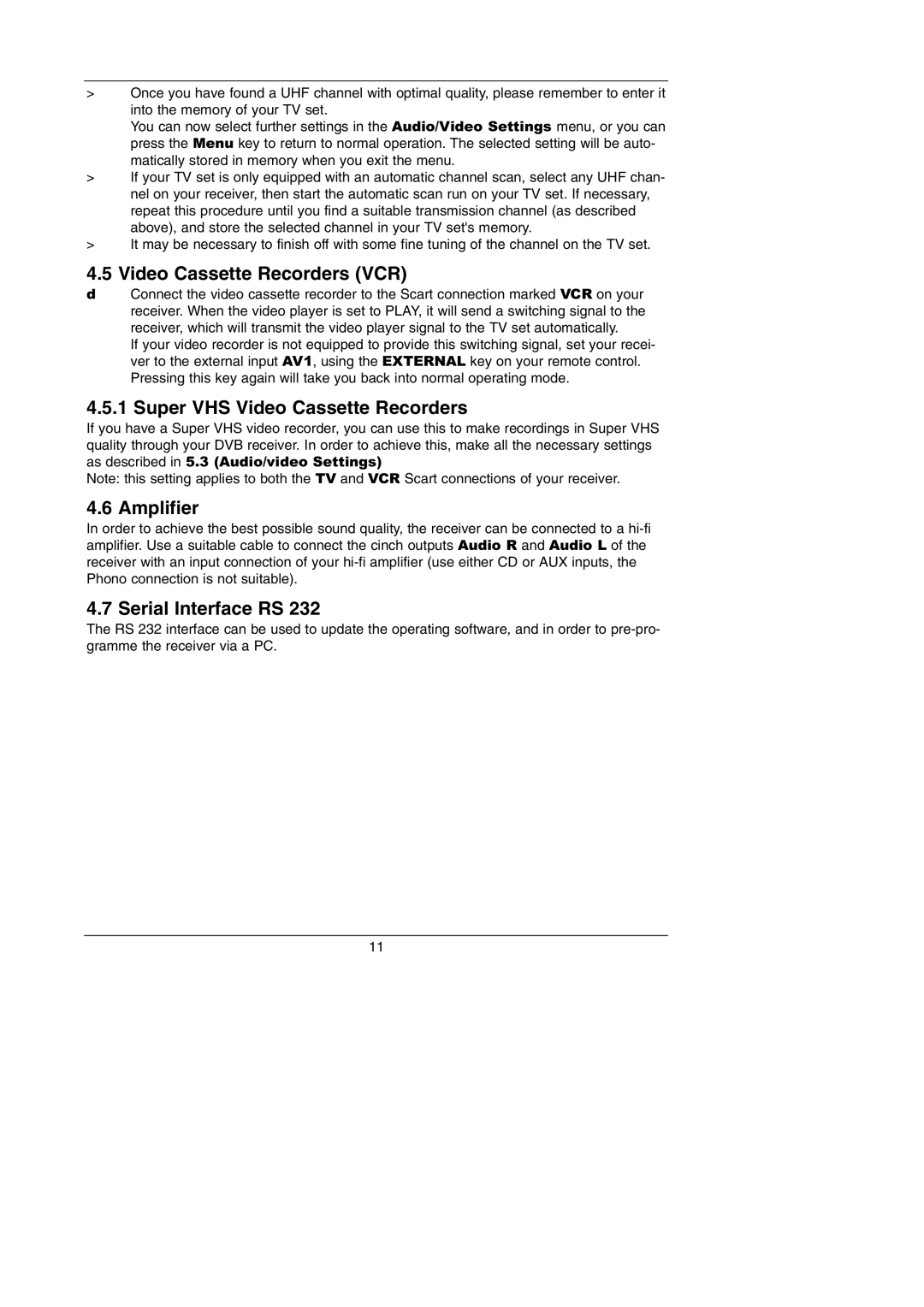
>Once you have found a UHF channel with optimal quality, please remember to enter it into the memory of your TV set.
You can now select further settings in the Audio/Video Settings menu, or you can press the Menu key to return to normal operation. The selected setting will be auto- matically stored in memory when you exit the menu.
>If your TV set is only equipped with an automatic channel scan, select any UHF chan- nel on your receiver, then start the automatic scan run on your TV set. If necessary, repeat this procedure until you find a suitable transmission channel (as described above), and store the selected channel in your TV set's memory.
>It may be necessary to finish off with some fine tuning of the channel on the TV set.
4.5 Video Cassette Recorders (VCR)
dConnect the video cassette recorder to the Scart connection marked VCR on your receiver. When the video player is set to PLAY, it will send a switching signal to the receiver, which will transmit the video player signal to the TV set automatically.
If your video recorder is not equipped to provide this switching signal, set your recei- ver to the external input AV1, using the EXTERNAL key on your remote control. Pressing this key again will take you back into normal operating mode.
4.5.1 Super VHS Video Cassette Recorders
If you have a Super VHS video recorder, you can use this to make recordings in Super VHS quality through your DVB receiver. In order to achieve this, make all the necessary settings as described in 5.3 (Audio/video Settings)
Note: this setting applies to both the TV and VCR Scart connections of your receiver.
4.6 Amplifier
In order to achieve the best possible sound quality, the receiver can be connected to a
4.7 Serial Interface RS 232
The RS 232 interface can be used to update the operating software, and in order to
11
